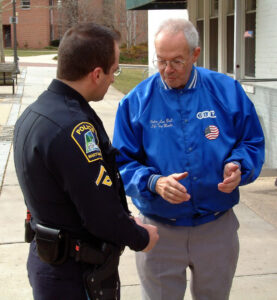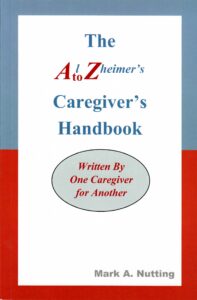According to the Alzheimer’s Association, the statistic is that 6 in 10 people who live with Alzheimer’s or other dementia, will wander from the safety of their familiar home environment. In my experience, the risk is closer to 8 in 10 people. A common factor in not preparing, is the caregiver rejecting the idea that his or her loved one is capable of leaving; nor, has the desire to leave. No one can predict when, where, or how, so why not take steps to prevent it? The person living with dementia always has a goal which drives them from the safety of their home. Examples may include: “I have to go pick up the children at the bus stop;” “I have to go to work;” or “I need to go home.” The person may be reacting to an unfamiliar or overstimulating environment. The person may be reacting to a loud noise or a situation that he or she does not understand. The person may be searching for someone or something, or be looking for something to do out of boredom.
Our brains have the capability of “cognitive mapping,” which is our way-finding ability. People living with dementia eventually lose their ability to way-find. The risk is that we never know when this ability will fail them; therefore, putting preventions in place makes sense. The person may become lost at any stage of the disease process.
If the person is still driving, when is it time to take the keys? If the person is no longer driving, when is it time to provide 24-hour supervision? These answers are not easy for anyone and there is not a uniform answer for everyone. There must be ongoing awareness of the person’s abilities. The only way to have a clear understanding of the person’s abilities is to be able to move through the denial stage of grief. It’s common to deny the true reality of what is happening. If both the person living with dementia and the caregiver remain stuck, prevention is not considered and the risk of wandering increases every day. Our coping mechanisms of bargaining and reasoning will be a barrier to being proactive rather than reactive. If the person displays any symptoms of disorientation, such as wayfinding throughout the home and other familiar locations, then the person is at greater risk.
What are some of the ways in which you can prevent your loved one from wandering?
- Ensure the person is actively engaged in purposeful activity such as household chores or tasks related to work.
- Tell your neighbors that your loved one has dementia and educate them that he or she is not safe if found walking outside the security of the home.
- If your local police department has a cognitive impairment registry, fill-in the form, and provide a current picture and make them aware.
- Put a piece of used clothing in a Ziploc bag so that if there is a need to utilize search dogs, your loved one’s scent is readily available.
- Look into either the Alzheimer’s Association’s Safe Return program or the Project Lifesaver program.
- Research window and door alarms, locks and GPS systems
Factors to consider include:
- Access to transportation or the person has a high physical ability will travel further
- May travel towards bodies of water
- May find their way to places familiar to their past
- Will not ask for help
- May not dress for the weather
Reasoning, judgement, memory, and orientation are all failing people living with dementia. It is important to understand that they never lose their ability to problem solve, which includes the ability to figure out how to get out of the safety of their environment.







